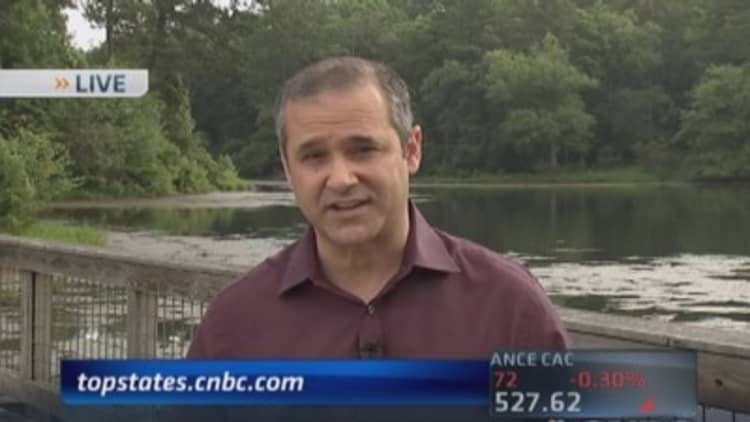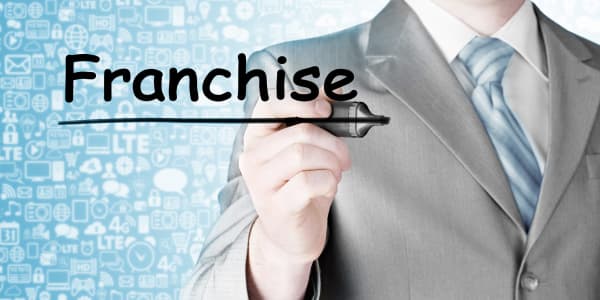By the numbers, Kansas is in the midst of a boom in small-business creation. Some 333,000 small-business owners filed returns this year, according to state revenue data, a record.
But numbers can be deceiving, and even some prominent state Republicans are pointing to what they say are unintended consequences of a massive tax-cutting package championed by Republican Gov. Sam Brownback in 2012.
Brownback had sold the package as a needed "shot of adrenaline" for the state economy, and particularly for small-business owners, whose profits would be exempt from state taxes. Indeed, the Kansas Department of Revenue reported 8,666 first-time small-business filings in 2013, the first full year of the cut.
But experts agree the surge in filings probably has little to do with some sudden burst of entrepreneurship in Kansas. Rather, they say, it is more likely the result of people merely adjusting their filing status to take advantage of the tax break. It is simple enough—and perfectly legal—for, say, a veterinarian to set himself up as a corporation.
And the tax savings compared to filing as an employee can be significant. Under the law, "pass-through" corporate profits are tax-free, compared to the top personal income tax rate of 4.8 percent in 2014.
But the cost to the state is huge as well. So much so, that a plan the governor had billed as "a real live experiment" in conservative economics is testing the mettle of even the most ardent supply-siders.
Read MoreTrend some businesses aren't waiting for
The nonpartisan Kansas Legislative Research Department had forecast the tax break would cost the state between $160 million and $165 million this year, based on 191,000 small-business filers in the state.
Instead, with so many more small-business filers than expected—nearly 75 percent above the projections—the cost has ballooned to $210 million. Add the effects of lower prices for farm commodities, oil and natural gas, and the state faces a budget shortfall of as much as $800 million for next fiscal year. That has put the small-business tax break directly in the legislature's cross hairs.
State Senate President Susan Wagle, a conservative Republican, is among those suggesting the law may need to be "fixed." She told The Wichita Eagle last month that it comes down to fairness.
Read MoreWhat Main Street is really worried about
"A CPA that works for a firm pays income tax, but a CPA who's hung out a shingle and works independently pays no income tax," she said, "or a painter, or an engineer, or a dentist, or a lobbyist. It's all professions and that's just unfair. It's unfair tax treatment."
Democrats, who are in the minority in the legislature and argued against the tax cuts, have been quick to say "I told you so." Last week, Senate Minority Leader Anthony Hensley called on a chief architect of the cuts, economist Arthur Laffer, to refund the $75,000 consulting fee the state paid him.
"While it is unrealistic to believe that Dr. Laffer could refund the billions of dollars in lost revenue, I believe it is more than reasonable to ask for him to pay back the $75,000," Hensley said in a statement.

But Brownback is sticking to his guns, contending the cuts are already showing results, and should be given more time to work. He has instead proposed a package of increases in consumption taxes on products like liquor and tobacco.
Read MoreAmerica's top states for businesses 2014
A spokeswoman for the Kansas Department of Revenue, Jeannine Koranda, told CNBC that in addition to a record number of new business filings in the state in 2013, the reforms brought "$486 million in new income to Kansas."
But the economic benefits from the new activity are difficult to determine. Kansas finished 15th in CNBC's America's Top States for Business rankings last year, compared to 11th before the tax cuts. The state did add about 21,000 jobs last year according to the U.S. Bureau of Labor Statistics, but the increase was below the national and regional averages, and it's impossible to tell how much of it is tied to the tax cuts.
Koranda acknowledges the increased income refers to adjusted gross income reported on federal tax returns. Since small-business profits are exempt from state income taxes, the increase does not directly benefit the Kansas treasury.
Last week, the state Revenue Department reported April revenue was $4.4 million below expectations, "driven mostly by lower-than-expected corporate income tax receipts."





